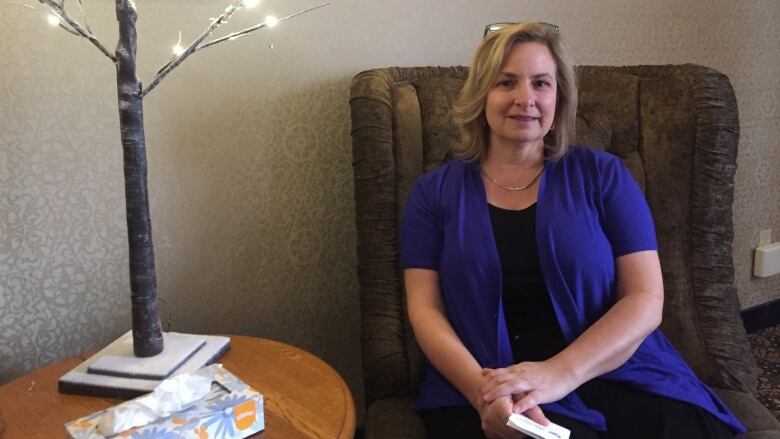Palliative care offers homeless people 'dignified death', says University of Victoria prof
Kelli Stajduhar says end-of-life care can provide "love, family, a home" to marginalized people

Many homeless people die "tragic" deaths, often in squalid conditions, alone and in pain. But that could change if they had better access to end-of-life care, a University of Victoria nursing professor told people gathered in Thunder Bay for the annual northwestern Ontario palliative care conference.
"When people get access to palliative care, when they get the opportunity to be cared for at a hospice or on a palliative care unit, often what people will say to us is it's the first time that I've been treated well in my entire life," said keynote speaker Kelli Stajduhar.
Her interest in helping marginalized people goes back decades to a patient she met when she was a palliative care nurse. The story still "haunts" Stajduhar, and helps driveher work in palliative care.
Sherry was a 27-year-old woman who fled an abusive relationship in Toronto, and ended up on the streets of Victoria, dying of AIDS.
Palliative care "gave her a sense of family, a sense of love and a place to lay her head- Kelli Stajduhar, University of Victoria nursing professor
"She was the most rough and tumble person that I had ever met," said Stajduhar.
But for Sherry, who had grown up in the foster system, the care she received at the end of her life "gave her a home," said Stajduhar. "It gave her a sense of family, a sense of love and a place to lay her head."
For the past five years, Stajduhar has been part of a group examining how to help homeless and marginalized people access palliative care because at present they "do not have particularly dignified deaths."
They're dying in single-occupancy hotel rooms, in parks or on the street.
Homeless people sometimes don't know they're dying because "they're so busy focusing on what they need to survive daily life- Kelli Stajduhar, Unviersity of Victoria nursing professor
"Their deaths tend to be kind of tragic and not what I think as Canadians, we want for anybody in our society."
Even if they are brought to a hospital, "the judgments and stigmas associated with that person's life" come into play as they near death, she said, noting people who struggle with substance abuse may be denied adequate pain relief because of their history of addiction.
As well, a lack of access to regular health care means some people don't even know the severity of their condition until it is too late to treat properly.
They don't know they're dying because "they're so busy focusing on what they need to survive daily life finding shelter, finding money for food."
Palliative care isn't on their radar, nor is it on the radar of the service providers they come in contact with, she said.
Help homeless die "in the ways they want to die"
Stajduhar and others are trying to raise the profile of palliative care through education, awareness and innovative programs, which servethe vulnerable community where they live the streets, shelters, old rooming houses.
Cities such as Toronto and Calgary have set up mobile palliative care where "people are able to die in place and die quite well,"according to their own choices and decisions,she said.Victoria is experimenting with a team which includes a physician, nurses and social workers.
But, the biggest obstacle may be getting rid of preconceived notions about what people want, said Stajduhar.
"We think of palliative care as this warm and welcoming environment, where peaceful music has to be playing, but that's our conceptualization, and by our I mean the white, middle-class, " she said, But in reality, "there isn't one model that's the best."
Instead there should be a range of options "to support people to be able to die in a way they want to die."
Stajduhar delivered the keynote address at the annual northwestern Ontario palliative care conference October 24 to 26, presented by the Centre for Research on Aging and Health at Lakehead University in Thunder Bay.
You can hear the full interview with Kelli Stajduhar on CBC'sSuperior Morninghere.












_(720p).jpg)


 OFFICIAL HD MUSIC VIDEO.jpg)
.jpg)



























































































